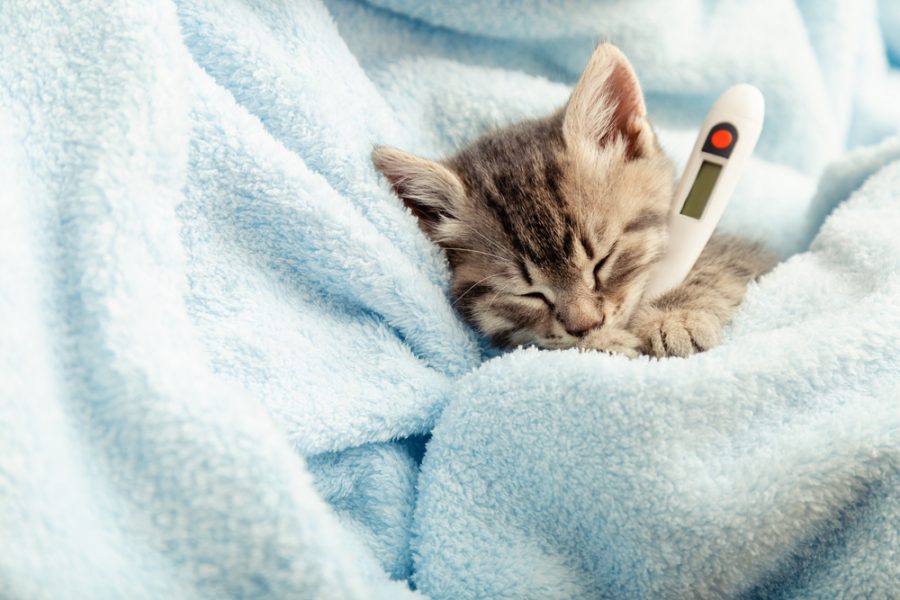<p style="text-align: justify;">One of the most worrying times in a cat owner’s life is when their pet is sick. Your cat can’t tell you exactly what’s wrong, but their distress will be clear, and you have to be informed enough to see that distress and take the correct next steps. Whether you’re worried and asking friends for help because “<a href="https://firstvet.com/uk/articles/vomiting-and-diarrhoea-in-cats-1">my cat keeps vomiting</a>” or a normally energetic and gregarious cat has been lethargic and withdrawn all week, then we’re here to help with some advice for what to do when your cat is sick.</p>
<h2 style="text-align: justify;"><strong>Vomiting and Diarrhea</strong></h2>
<p style="text-align: justify;">Alas, one of the most common health problems cats can experience is an upset stomach. This is distressing for them and, in part because you have to do the <a href="https://www.wikihow.com/Clean-Pet-Vomit-from-Carpet">cleaning up</a>, distressing for you too!</p>
<p style="text-align: justify;">The good news is that in most cases of feline digestive problems, they will recover quickly and without the need for medical intervention. The most important thing you can do is try to help them stay hydrated &#8211; even in non-serious cases of vomiting and diarrhea, dehydration can set in quickly and escalate into a more serious problem. Provide lots of clean, fresh water and also small but frequent meals. Boiled chicken and rice is easily digestible and nourishing &#8211; it’s not a good idea to allow a cat to starve, even if they’re suffering diarrhea or vomiting.</p>
<p style="text-align: justify;">If symptoms persist, or your cat is showing other causes for concern, then you should make an appointment with the vet without delay to seek help.</p>
<h2 style="text-align: justify;"><strong>Knowing Your Vet</strong></h2>
<p style="text-align: justify;">The most important thing you can do to be ready for the sad days when your cat is sick is to have an existing relationship with <a href="https://www.bluecross.org.uk/pet-advice/choosing-right-vet-practice">your vet</a>. If your cat needs serious help and you don’t know where to take them to get that help, then the situation could get worse, quickly. If you’re already registered at a vet then your cat is likely to be in better health to start with, you’re more likely to identify serious health concerns early, and when something unexpected does happen, you know exactly where to go for help.</p>
<h2 style="text-align: justify;"><strong>Aging Issues</strong></h2>
<p style="text-align: justify;">As your cat ages, it can become prey to more serious <a href="https://pets.webmd.com/cats/guide/aging-cats-qa#1">health problems</a> &#8211; and even minor concerns can have dramatic knock on effects. Just like humans, cats get less resilient as they age.</p>
<p style="text-align: justify;">As your cat ages, your vet can give advice on how to best care for them &#8211; one of the reasons it’s important to establish that relationship with them! This can include dietary changes to ensure they’re getting the specific nutrients they need in the easiest way to digest to regular health check ups, to early treatments for age related conditions like arthritis, deafness or dental issues. Spotting these issues early means you will feel less unprepared and worried, and your cat will enjoy a happier, healthier old age.</p>

When Your Cat Is Sick
